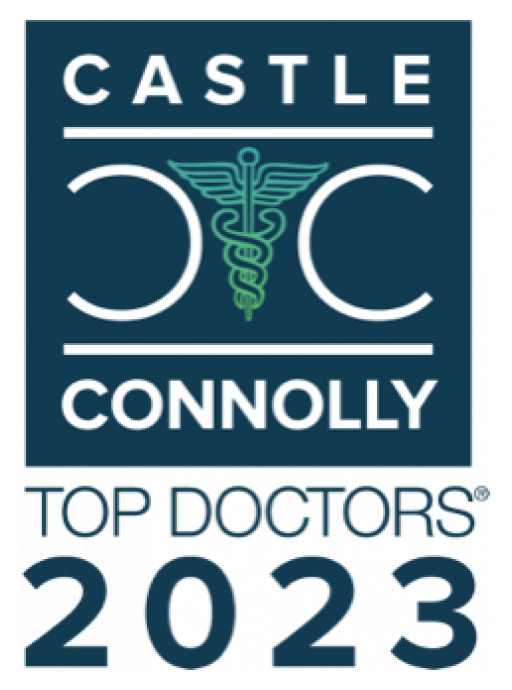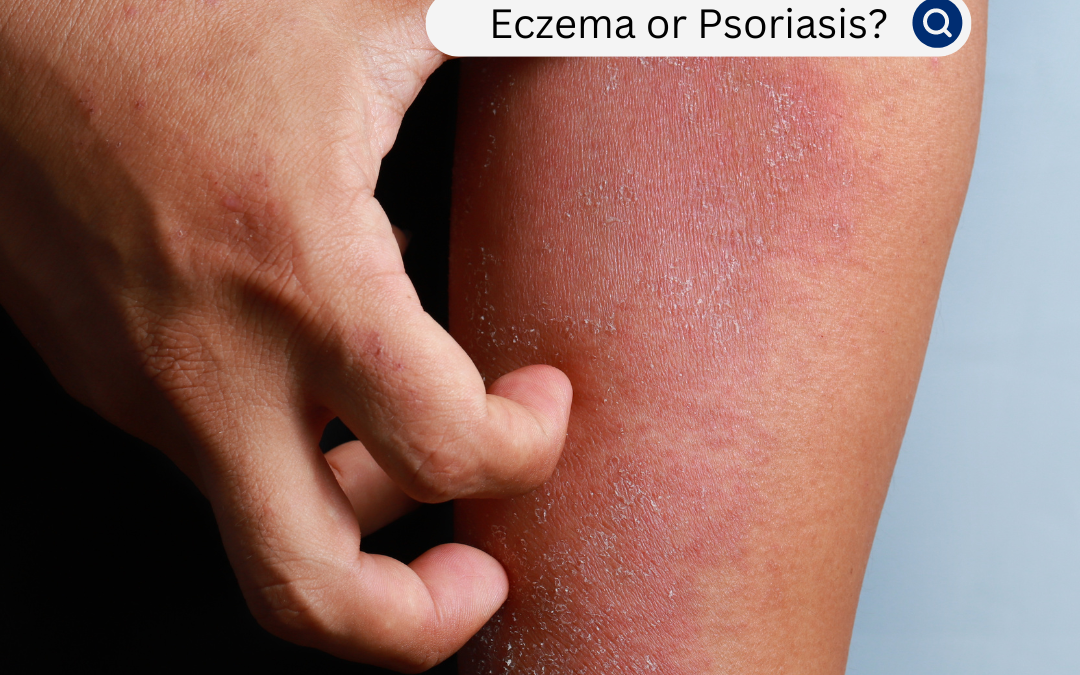Eczema and psoriasis are two common skin conditions that often get confused due to their similar symptoms. Both can cause redness, itching, and inflammation, but they are distinct conditions with different underlying causes and treatments. Understanding the differences between eczema and psoriasis can help you get the right diagnosis and appropriate treatment. This blog will explore the key differences between these conditions, their symptoms, triggers, and treatment options.
What is Eczema?
Eczema, also known as atopic dermatitis, is a chronic condition that causes inflammation, redness, and irritation of the skin. It often starts in childhood but can occur at any age. Eczema is characterized by:
-
Dry, itchy skin: The itchiness can be intense, leading to scratching that may worsen the condition.
-
Red patches: These can appear on various parts of the body, including the face, arms, legs, and behind the knees.
-
Scales and thickened skin: Over time, the affected skin can become thickened or develop small, scaly patches.
-
Blisters: In severe cases, blisters filled with fluid can form and eventually burst, leading to crusty areas.
Eczema is often linked to allergies and is thought to be caused by a combination of genetic and environmental factors. People with eczema may have a family history of allergies or asthma.
What is Psoriasis?
Psoriasis is a chronic autoimmune condition that speeds up the growth cycle of skin cells, leading to thick, scaly patches on the skin. These patches are often covered with silvery scales. Key characteristics of psoriasis include:
-
Plaques: Raised, red patches covered with silvery scales are typical of psoriasis. These plaques can appear anywhere on the body but are commonly found on the scalp, elbows, knees, and lower back.
-
Itching and discomfort: Like eczema, psoriasis can be itchy and uncomfortable.
-
Nail changes: Psoriasis can affect the nails, causing pitting, thickening, or discoloration.
-
Joint pain: Some people with psoriasis may also experience psoriatic arthritis, which causes joint pain and stiffness.
Psoriasis is an autoimmune disorder where the immune system mistakenly attacks healthy skin cells, leading to rapid cell turnover and the formation of plaques.
Key Differences Between Eczema and Psoriasis
While eczema and psoriasis share some similarities, they have distinct differences:
1. Appearance of Lesions:
-
-
Eczema: Typically causes red, inflamed skin that may be dry, scaly, and itchy. Blisters can form in more severe cases.
-
Psoriasis: Causes thick, red patches covered with silvery scales. These plaques are often more defined and have a distinct appearance compared to eczema.
-
2. Location:
-
-
Eczema: Commonly affects the folds of the skin, such as behind the knees, inside the elbows, and on the face and hands.
-
Psoriasis: Often affects the scalp, elbows, knees, and lower back, but can occur anywhere on the body.
-
3. Age of Onset:
-
-
Eczema: Often begins in childhood but can occur at any age.
-
Psoriasis: Typically develops in late adolescence or early adulthood, but it can start at any age.
-
4. Triggers:
-
-
Eczema: Triggers include allergens, irritants (such as soaps and detergents), stress, and environmental factors.
-
Psoriasis: Triggers can include infections, stress, certain medications, and injuries to the skin.
-
5. Treatment:
-
-
Eczema: Treatment often includes moisturizing the skin, avoiding triggers, and using topical steroids or other anti-inflammatory medications.
-
Psoriasis: Treatment may involve topical treatments, phototherapy, systemic medications, or biologics that target the immune system.
-
Diagnosis
Accurate diagnosis is crucial for effective treatment. Dermatologists typically diagnose eczema or psoriasis based on a physical examination and medical history. Sometimes, a skin biopsy may be performed to confirm the diagnosis and differentiate between the two conditions.
Treatment Options
1. Topical Steroids:
-
-
Purpose: Topical steroids are the most common treatment for reducing inflammation and controlling flare-ups.
-
Usage: Apply as directed by your healthcare provider. They come in various strengths, so it’s essential to use the appropriate potency for your condition and follow the prescribed duration to avoid potential side effects.
-
2. Topical Calcineurin Inhibitors:
-
-
Purpose: These non-steroidal medications help reduce inflammation and are used as an alternative to steroids, especially for sensitive areas like the face.
-
Examples: Tacrolimus (Protopic) and pimecrolimus (Elidel).
-
Usage: Apply to affected areas as directed by your doctor. These medications are generally well-tolerated but may cause temporary burning or stinging.
-
3. Topical PDE4 Inhibitors:
-
-
Purpose: These newer medications help control inflammation by inhibiting a specific enzyme involved in the inflammatory process.
-
Example: Crisaborole (Eucrisa).
-
Usage: Apply to affected areas twice daily. It is often used for mild to moderate eczema.
-
4. Systemic Medications:
-
-
Purpose: For severe eczema that doesn’t respond to topical treatments, systemic medications may be necessary to control inflammation throughout the body.
-
Examples: Oral corticosteroids (e.g., prednisone) and immunosuppressants (e.g., cyclosporine, methotrexate).
-
Usage: These are generally prescribed for short-term use or in specific cases due to potential side effects.
-
5. Biologic Therapies:
-
-
Purpose: Biologics are a newer class of medications designed to target specific molecules involved in the inflammatory process of eczema.
-
Example: Dupixent (dupilumab) is used for moderate to severe eczema and works by targeting interleukin-4 and interleukin-13.
-
Usage: Administered via injection, typically every two to four weeks, depending on the specific medication.
-
For Psoriasis:
1. Topical Treatments: Including corticosteroids, vitamin D analogues, and tar-based products.
2. Phototherapy: Using ultraviolet light to slow down the rapid skin cell turnover.
3. Systemic Medications: Oral or injected medications that affect the entire body, such as methotrexate or cyclosporine.
4. Biologics: Targeted therapies that work on specific parts of the immune system.
5. Lifestyle Changes: Managing stress, maintaining a healthy weight, and avoiding triggers can help control psoriasis symptoms.
When to See a Doctor
If you are experiencing symptoms that resemble eczema or psoriasis, it’s important to consult a healthcare professional. A dermatologist can provide a proper diagnosis and develop an appropriate treatment plan tailored to your specific needs.
Eczema and psoriasis, while similar in some respects, are distinct conditions with their own unique characteristics and treatment strategies. Understanding the differences between these two conditions is crucial for managing symptoms effectively and improving your quality of life. If you suspect you have either condition, seek medical advice to get an accurate diagnosis and a personalized treatment plan.
If you feel like your eczema is out of control, we’re here to help. Stay informed and take control of your skin health this Halloween and beyond!





